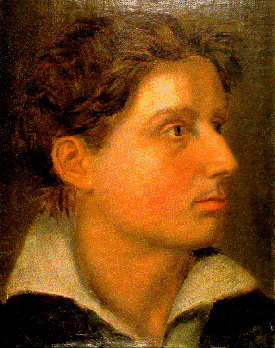On June 13, August von Hoven, the
father of Schiller's fellow student von Hoven, died. This may
have provided the occasion for Schiller's fellow student Johann
Rudolf Zumsteeg's writing music to Schiller's poem
'Leichenphantasie' which Schiller later published in his 'Anthology
on the Year 1782'.
From mid-June to the end of July,
Schiller looked after his fellow student Grammont whose suicide
intentions he had recognized in time. Schiller's reports explain
the physical and psychological deterioration of Grammont.
Schiller believed that Grammont suffered from a conflict of
conscience between Pietistic teachings and teachings of
Enlightenment.
Schiller's second dissertation was
printed in December. Article 15 also contains a veiled quote from
his own play 'Robbers', from the first scene of act five. Schiller
listed as fictitious source, 'Life of Moor. Tragedy by Krake'.
Schiller also used his incidental contact with the printer
Christoph Friedrich Cotta to have the volume of his play 'Robbers' appraised and calculated.
His own and his parents' bitter
disappointment at his meager earnings prompted his father Johann
Kaspar Schiller, to petition to the Duke that his son be allowed
to carry on a part-time medical practice in civilian clothes.
This request was refused. Moreover, Schiller had to obtain
official permission in order to visit his parents in Solitude.
Reports of Schiller's activities as
army physician describe him as displaying little enthusiasm for
his profession, relying heavily on the prescription of strong
dosages of medication to 'cure' his patients (this was, to
Schiller's protection, secretly 'overriden' by his medical
supervisor). The only medical literature Schiller bought was a
pharmacists' almanach.
At the end of December, Schiller
wrote, probably commissioned by the officers' corps of his
regiment, a funeral ode 'On the Death of Captain Wiltmaister'.
In retrospect, Schiller described
his years at the Karlsschule thus in his 1785 edition of the
'Rheinische Thalia':
"Neigung fuer Poesie
beleidigte die Gesetze des Instituts, worin ich erzogen ward,
und widersprach den Plaenen seines Stifters. Acht Jahre lang
rang mein Enthusiasmus mit der militaerischen Regel, aber
Leidenschaft fuer die Dichtung ist feurig und stark, wie die
erste Liebe. Was sie ersticken sollte, fachte sie an"
(Goethe und seine Zeit 119).
"Inclination towards poetry
insulted the laws of the institution in which I was educated,
and contradicted the plans of its founder. For eight years,
my enthusiasm struggled with the military rule, but passion
for poetry is strong and fiery, like the first love. What it
was supposed to smother, it ignited."
BACK TO THE TIME TABLE!
